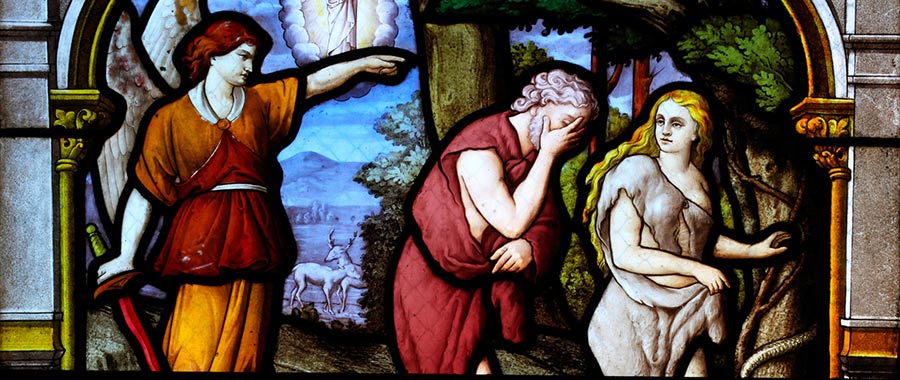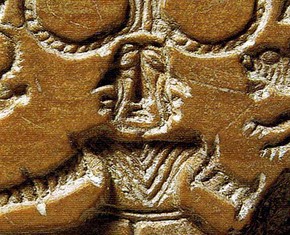The views expressed in our content reflect individual perspectives and do not represent the authoritative views of the Baha'i Faith.
We cannot blame Milton for believing that Christ was God’s sole revelator—he inherited this misinterpretation of religious history from over a thousand years of embedded dogma.
Most important, he, like most of Western Christendom, was deprived of the illumination that Muhammad’s revelation shed on this subject. One of the dominant themes of the Qur’an is the articulation of the assistance that God has given to man through the succession of prophets or divine messengers.
For example, in the sura of Houd, Muhammad briefly recounts the lives of the Prophets and then observes the pitiful irony of Their rejection by those to whom God had sent Them as teachers and as intermediaries between the spiritual and physical realms of reality:
Moreover, to Moses gave we “the Book,” and we raised up apostles after him; and to Jesus, son of Mary, gave we clear proofs of his mission, and strengthened him by the Holy Spirit. So oft then as an apostle cometh to you with that which your souls desire not, swell ye with pride, and treat some as impostors, and slay others? – Qur’an 2:81.
But Muhammad spoke most forcefully on the erroneous view that Christ is the only savior sent by God to humankind when he discussed what had become, by the time of Muhammad’s advent in the seventh century, the Christian doctrine of the trinity. Repeatedly in the Qur’an Muhammad rebukes those who believe that Christ is God or that Christ is the Son of God in the flesh, that Christ is of the same essence as God:
Believe therefore in God and his apostles, and say not, “Three:” (there is a Trinity)—Forbear—it will be better for you. God is only one God! Far be it from His glory that He should have a son … The Messiah disdaineth not to be a servant of God, nor do the angels who are nigh unto Him. – Qur’an 4:169-170.
The importance of the concept of progressive revelation to Baha’i belief is partially demonstrated by the fact that, next to his Most Holy Book, the most important single work revealed by Baha’u’llah is The Book of Certitude, an exquisitely organized and lucid exposition on the subject of progressive revelation. There Baha’u’llah explains that all of God’s messengers are:
… sent down from the heaven of the Will of God, and as they all arise to proclaim His irresistible Faith, they therefore are regarded as one soul and the same person. – Baha’u’llah, The Book of Certitude, p. 152.
Still another noteworthy distinction between the implications of Milton’s theology and Baha’i beliefs has to do with the interpretation of the Adamic myth. As Abdu’l-Baha notes in Some Answered Questions (122–26), many interpretations of the Edenic story are possible, but indisputable from a Baha’i point of view is the fact that Adam was a prophet of God. In the Qur’an, Muhammad describes Adam as revealing the essentially spiritual nature of the physical world. Although the Book of Genesis seems to portray a literal man giving names to birds and beasts and “every living creature,” the Qur’an portrays Adam as a prophet whose task is to reveal to the phenomenal world the spiritual attributes and names inherent in every created thing, a likely interpretation of this mythical allusion in Genesis:
They said, “Praise be to Thee! We have no knowledge but what Thou hast given us to know. Thou! Thou art the Knowing, the Wise.”
He said, “O Adam, inform them of their names.” And when he had informed them of their names, He said, “Did I not say to you that I know the hidden things of the Heavens and of the Earth, and that I know what ye bring to light, and what ye hide?” – Qur’an 2:19, 30-31.
Here Adam is not bestowing names; rather he “informs them” of names they already possess. In so doing, he implies that the name is not so much a literal appellation as it is a spiritual quality or divine attribute, recalling for us our earlier examination of the doctrine Plato espoused.
The Qur’anic explanation is further suggested in the Baha’i writings, where use of the term name denotes spiritual attributes and the term Kingdom of Names refers to physical reality, a place where spiritual reality cannot be understood directly but is comprehended indirectly through physical dramatization or metaphorical expression:
Inasmuch as He, the sovereign Lord of all, hath willed to reveal His sovereignty in the kingdom of names and attributes, each and every created thing hath, through the act of the Divine Will, been made a sign of His glory. So pervasive and general is this revelation that nothing whatsoever in the whole universe can be discovered that doth not reflect His splendor. – Baha’u’llah, Gleanings from the Writings of Baha’u’llah, p. 184.
In the Baha’i teachings the spiritual world is thus sometimes referred to as the “world of vision,” as a reality in which the attributes no longer need be understood indirectly by being concealed in “names” or physical forms: “The Kingdom is the world of vision . . . , where all the concealed realities will become disclosed.” – Abdu’l-Baha, Tablets of Abdu’l-Baha, Volume 1, p. 205.
The Baha’i interpretation of the Adamic myth does not directly contravene anything Milton attempts to say, but it does give a more ample explanation of why humankind is ordained to begin life in a physical environment. In Milton’s interpretation the earthly home is partly punishment for Adam’s transgression, but mostly, we come to understand, it is a means by which humankind will come to appreciate God’s mercy and grandeur.
As we continue to examine the Baha’i paradigm of physical reality, we will see that the Baha’i writings portray the physical world and our experience in it as valuable in and of itself. Now that we have explored the basic problem of theodicy and the Baha’i response to some of the major questions raised by previous attempts to discern God’s justice, in subsequent essays we can assemble a model, or paradigm, of physical creation as revealed in the Baha’i teachings.
You May Also Like
Comments

















Warmest regards,
John
(From a letter written on behalf of the Guardian to an individual believer, May 19, 1945)